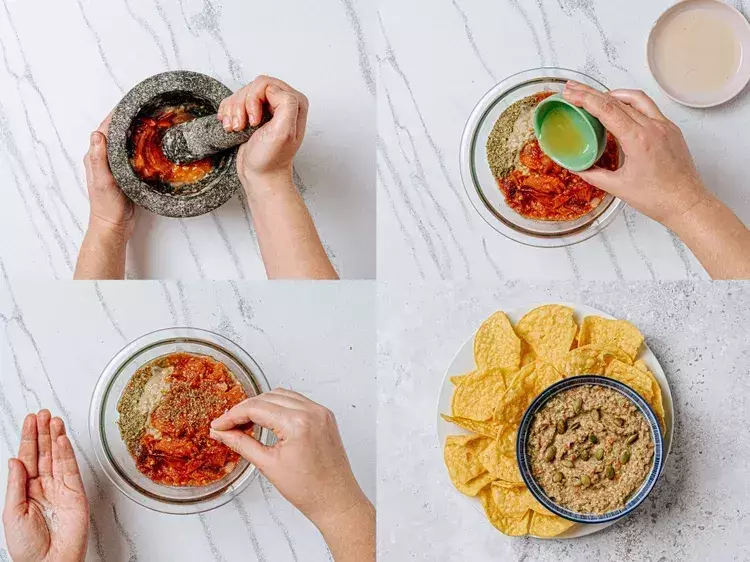
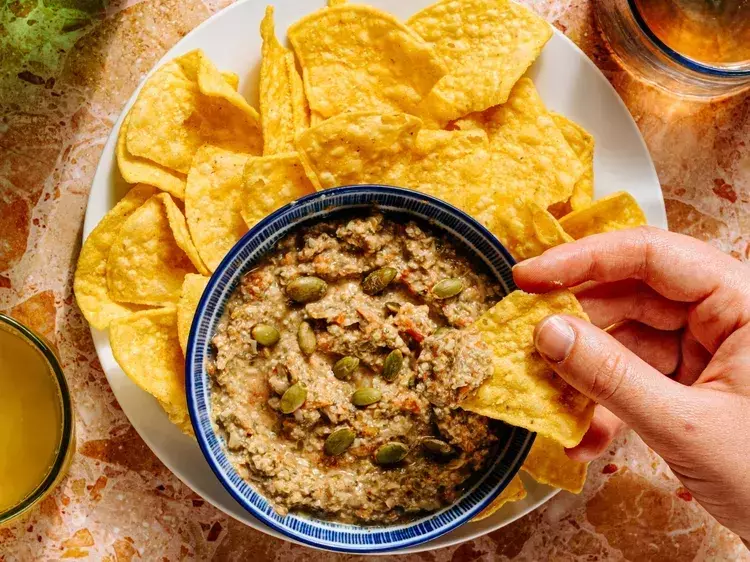
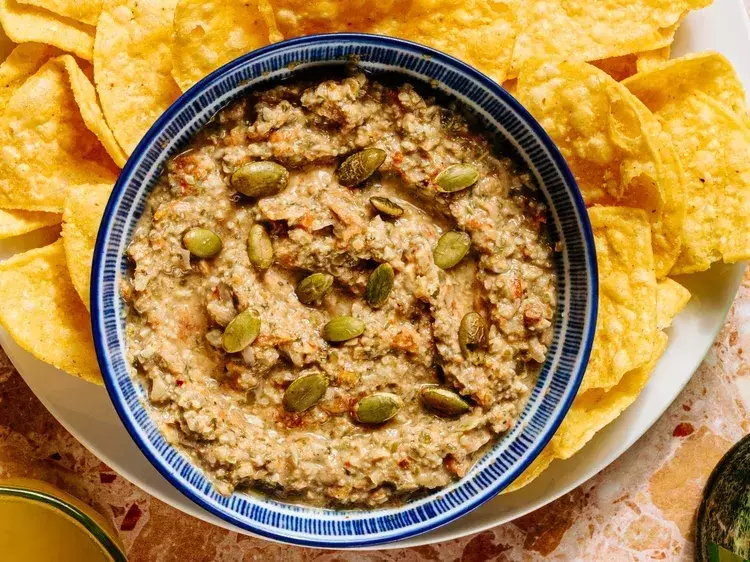
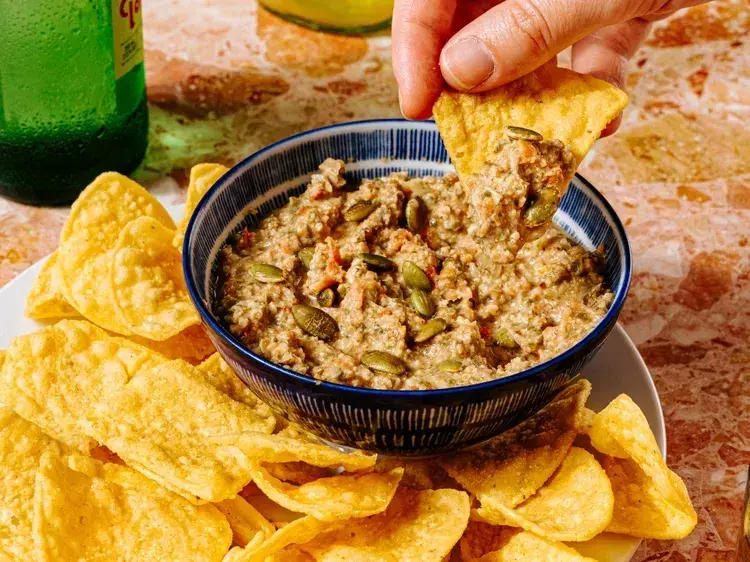
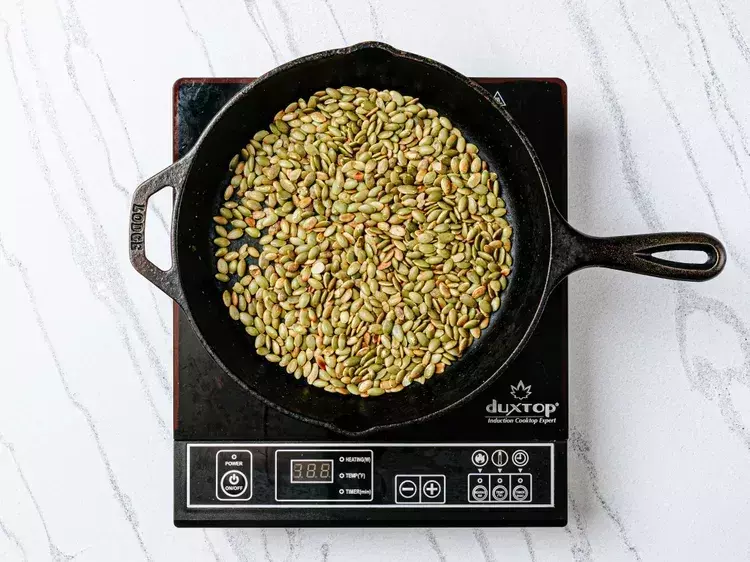
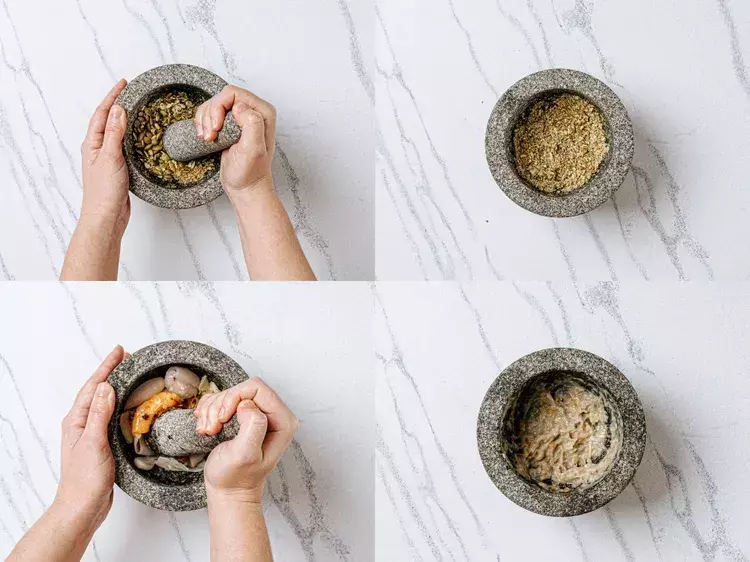


Sikil Pak, a traditional Mayan dip, offers a rich blend of toasted pumpkin seeds and fire-roasted tomatoes, delivering a unique smoky flavor. This ancient dish, deeply rooted in the culinary heritage of the Yucatán, is more than just a dip; it's a celebration of indigenous ingredients and time-honored techniques. Ideal for gatherings, this make-ahead friendly recipe ensures a delicious and authentic experience. The use of a cast iron skillet simplifies the roasting process, achieving the perfect balance of char and tenderness for a delightful culinary journey.
The Ancient Art of Sikil Pak: A Culinary Journey from Yucatán
Sikil Pak, a revered Mayan dish, translates literally to “pumpkin seed” and “tomato” in Maya t'an. This vibrant dip, born from the fertile lands of the milpa, has graced Yucatecan tables for centuries, featuring prominently in ceremonial feasts like Hanal Pixán. What began as a staple of sustenance and ceremony has evolved into a beloved appetizer enjoyed across Mexico and beyond, adapting to modern kitchens while retaining its soulful essence. This recipe brings the heart of Yucatán to your home, showcasing the blend of ancestral tradition and contemporary convenience.
The creation of an exquisite Sikil Pak hinges on expert heat management. Begin by toasting pumpkin seeds, known as pepitas, until they are golden and slightly puffed, releasing their aromatic oils. Crucially, allow them to cool completely before grinding; this step preserves the desired sandy texture, preventing them from becoming a sticky paste. Simultaneously, a cast iron skillet transforms tomatoes, shallots, garlic, and habanero peppers. These ingredients are gently roasted in their skins, coaxed by medium-low heat until tender and beautifully charred, developing the signature smoky depth of the dip. The precise control of heat ensures an even char, marrying smoky notes with the inherent sweetness of the vegetables. While traditional recipes might call for white or green onions, shallots are favored in this rendition for their delicate sweetness, enhancing the overall flavor profile. After roasting and cooling, the vegetables are peeled, then combined with the finely ground pepitas and mashed into a rustic, creamy dip. The molcajete, a traditional volcanic stone mortar, or a sturdy mortar and pestle, is highly recommended for this stage, as it imparts a unique, slightly textured creaminess that a food processor or blender struggles to replicate. The final dip should be thick enough to scoop, yet loose, dotted with fragments of toasted pepitas and hints of charred tomato—a testament to its handcrafted authenticity.
Traditionally, Sikil Pak is a versatile accompaniment, whether served alongside freshly made corn tortillas, crisp radish slices, or cool cucumber spears. Its rich, nutty profile and smoky tomato undertones also make it an ideal partner for grilled meats, roasted vegetables, or as a flavorful spread for tacos and sandwiches. This dish is not just a meal component but a vibrant centerpiece, perfect for elevating any gathering with its deep flavors and cultural significance. It is a testament to culinary heritage, easily prepared and enjoyed.
Sikil Pak offers more than just a unique taste; it is a delicious lesson in culinary heritage and the importance of preserving traditional flavors. The art of balancing simple ingredients and meticulous technique transforms humble pumpkin seeds and tomatoes into a dip rich in history and flavor. This experience reminds us of the profound connections between food, culture, and community, encouraging us to savor each bite and appreciate the stories behind our meals.
